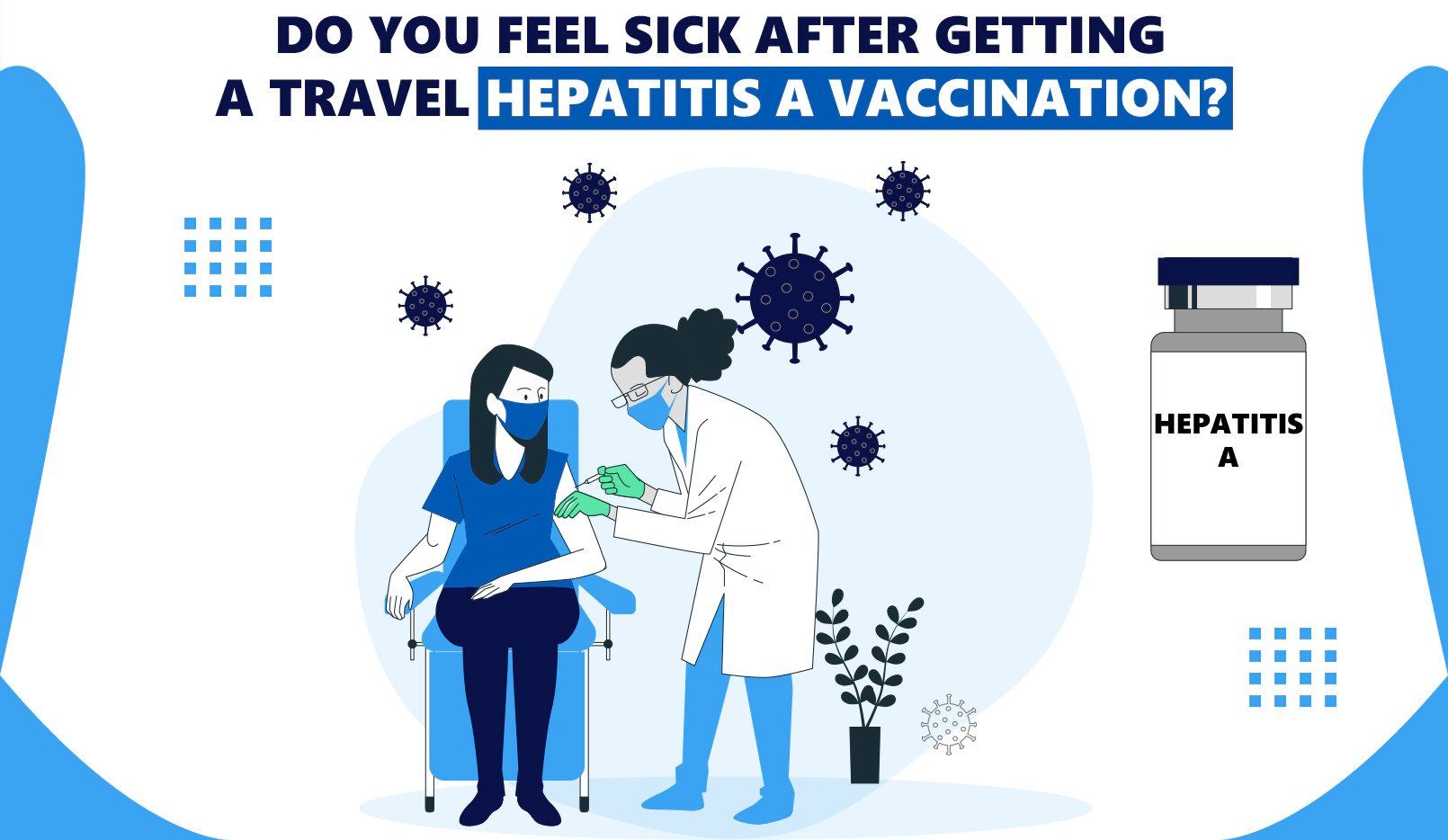
Do You Feel Sick After Getting a Travel Hepatitis a Vaccination?

Hepatitis A is a dangerous virus that can cause serious health problems if not treated promptly. If you travel to areas where the disease is prevalent, you must vaccinate against it. But what if you don't feel well after getting your vaccine? Is it still safe to go on your trip?
The answer, as always, depends on several factors. But generally, the risk of getting hepatitis A while travelling is relatively low. For most people, the vaccine will provide adequate protection against the virus.
However, if you develop symptoms after vaccination, please see your doctor. Symptoms can vary significantly from person to person, and some people may experience very mild side effects. But if you experience severe side effects after getting vaccinated, such as jaundice or liver failure, please seek medical attention immediately.
What is hepatitis A?
If you received a travel hepatitis A vaccine while travelling in an area where the disease is prevalent, there's a good chance you will feel sick. Symptoms of hepatitis A can include fever, fatigue, stomach pain, and diarrhea.
In some cases, people may also experience jaundice (yellowing of the skin and eyes). Vaccine-associated illness is usually mild and lasts about a week. However, in some cases, it can be more severe and lead to liver cirrhosis or even death.
If you develop symptoms after hepatitis A vaccination, don't wait to see if they go away independently. Contact your doctor immediately.
How is hepatitis A spread?
Hepatitis A is most commonly spread when someone infected with the virus vomits or defecates, and their vomit or diarrhea goes into water or another object. If a child younger than five years old ingests poop, they could also get hepatitis A.
If you travel to a country where hepatitis A is common, getting vaccinated against the virus is essential.
What are hepatitis A Symptoms?
Symptoms of hepatitis A can vary depending on the person's age, health status and underlying liver condition. In general, symptoms typically begin 12 to 24 hours after exposure to the virus and last for several weeks.
Common symptoms include fever, fatigue, nausea, vomiting, abdominal pain and jaundice (yellowing of the skin and eyes). Some people may also experience dark urine, clay-coloured stools or yellowish stools with a greenish colour.
In more severe cases, liver failure can occur, and death may follow. If you think you may have contracted the hepatitis A virus, see your travel vaccination service as soon as possible for diagnosis and treatment.
Are travel vaccines consistently effective?
Travellers who have hepatitis A vaccination are almost always protected from the disease. However, there is a minimal chance of getting the disease after vaccination.
Most people who get vaccinated against hepatitis A feel well after getting the vaccine and do not experience any side effects. However, if you experience any side effects, please talk to your doctor or healthcare provider.
Some people who have received a hepatitis A vaccine may still get the disease if they travel to an area with a high disease prevalence. The best way to avoid getting hepatitis A is to avoid being in areas where the virus is active.
Swift Clinics provides a range of medical services, a Canadian healthcare company that provides walk-in clinics, family practice, occupational health services, and travel medicine.
The clinics' goal is to provide people with timely, reasonably priced treatment in an accessible location. Qualified healthcare experts provide services, and the clinic's hours may be adjusted to fit hectic schedules.
Contact a travel vaccination service if you wish to be immunized before your next overseas trip. They'll assist you in choosing the appropriate vaccinations and ensure you're fully protected before you leave the country.
Can I get hepatitis A if I've been vaccinated?
You can get hepatitis A after receiving a travel hepatitis A vaccination. This is because the vaccine doesn't protect 100% against the virus. If you're concerned about getting hepatitis A, talk to your doctor about whether the vaccine suits you. The vaccine isn't recommended for pregnant or breastfeeding people.
Yes, you can get hepatitis A if you've been vaccinated. However, the risk of getting hepatitis A after receiving a travel hepatitis A vaccination is shallow. The risk of getting hepatitis A after receiving a travel vaccine depends on various factors, including age and health history. If you develop symptoms after getting a travel hepatitis A vaccination, contact your doctor immediately.
What should I do if I develop a fever after getting the vaccine?
If you develop a fever after getting the vaccine, see your doctor. This can signify that you have contracted the disease and may need to be hospitalized.
See your healthcare provider if you develop a fever after getting the vaccine. Some people may experience side effects such as headaches, fever, and muscle aches after getting the vaccine. If you experience any of these side effects after getting the vaccine, report it to your healthcare provider.
If you develop a fever after getting the vaccine, there is likely nothing wrong with you. The fever may be caused by the vaccine itself, a side effect of the injection, or something else. If your fever lasts more than 24 hours or is very high (101-103 degrees Fahrenheit), you should see a doctor.
Conclusion
After reading this article, I think it's safe to say that getting a travel hepatitis A vaccination is a good idea. However, just because getting the vaccine will help you doesn't mean that you won't feel sick afterwards.
Most vaccinated people experience some side effects after getting the shot, but it's usually mild and last only a short time. If you experience any unusual symptoms following your vaccination, talk to your doctor about them.
Appreciate the creator